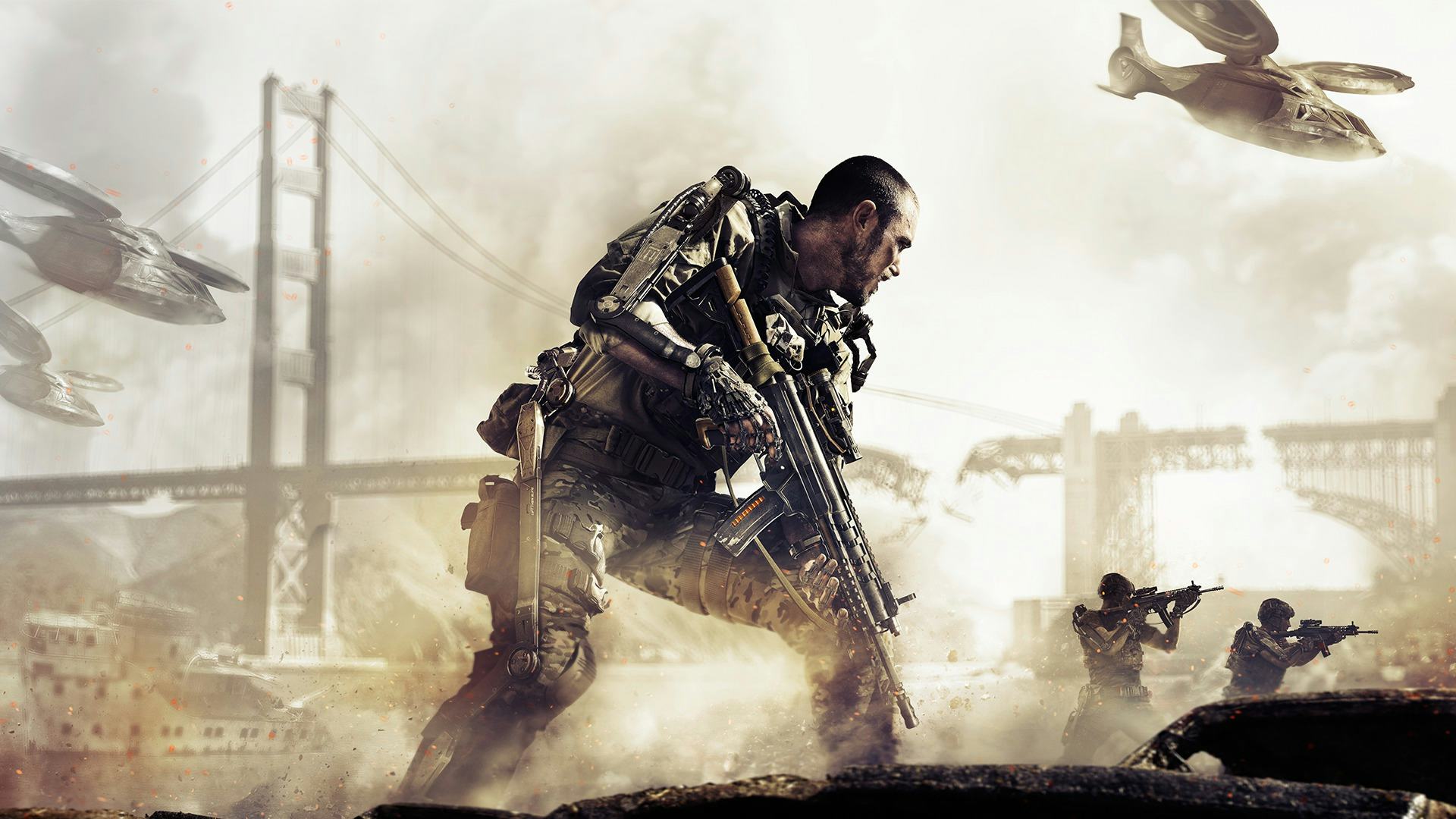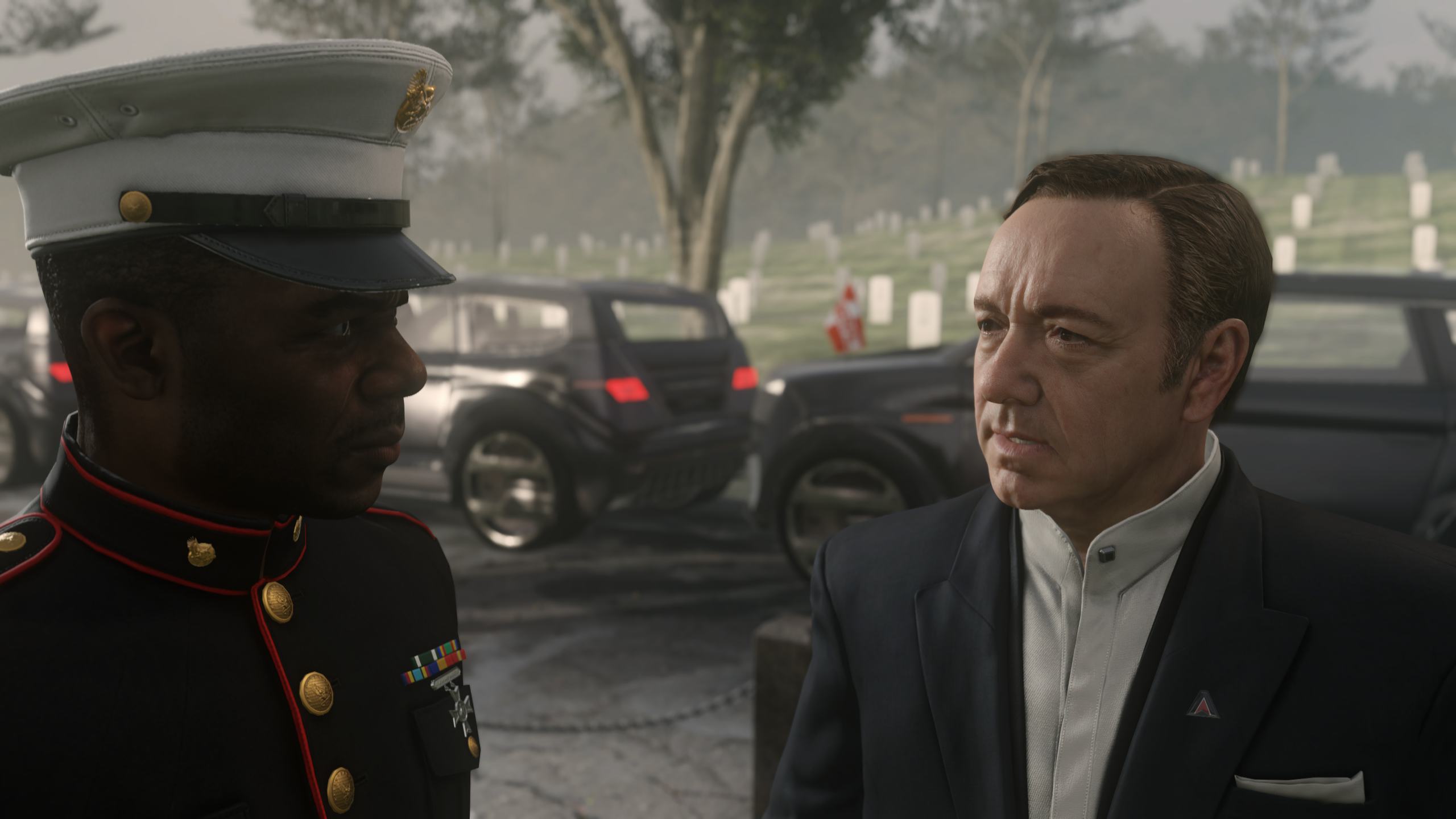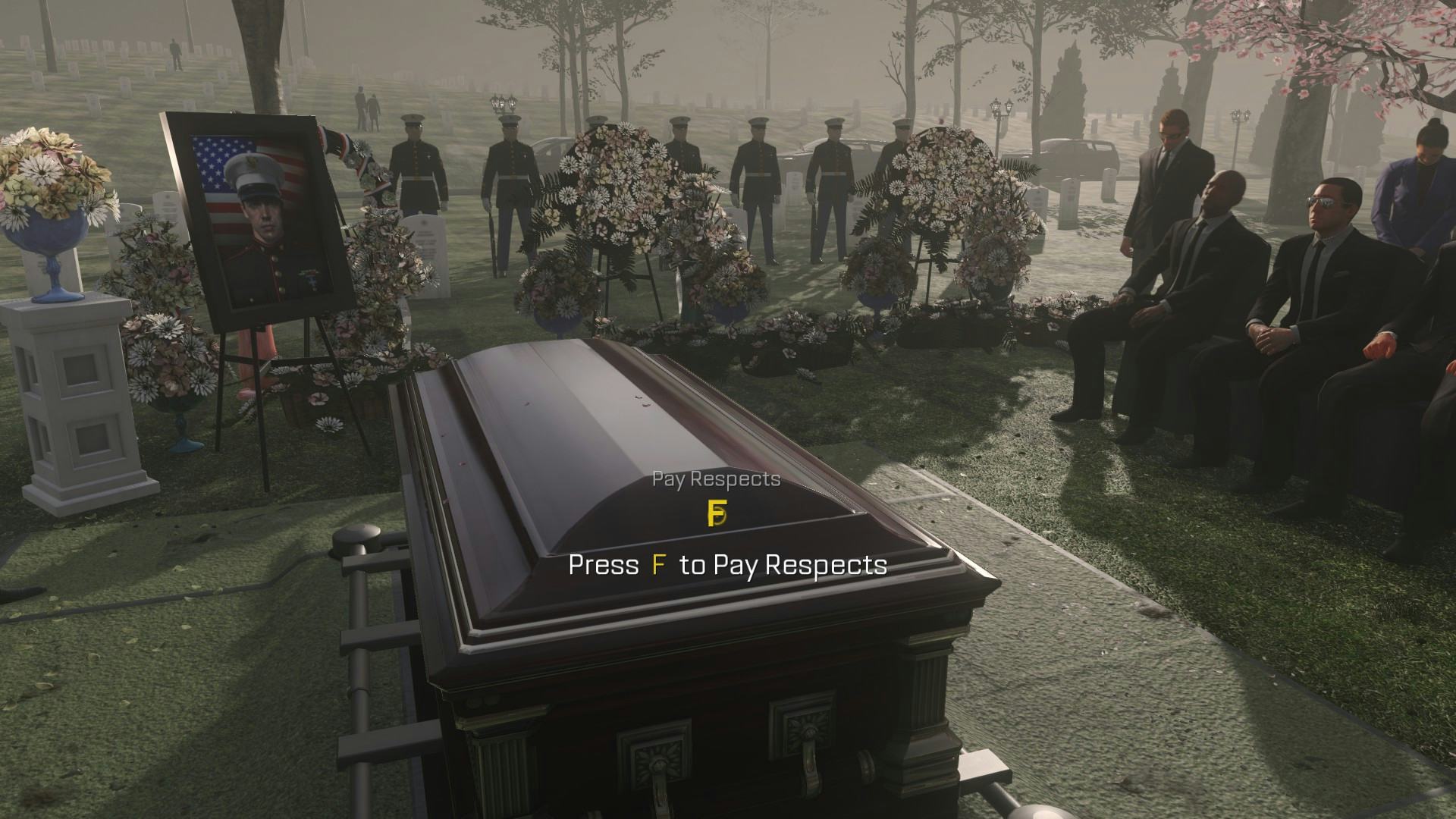
By 2013, the Call of Duty machine had been going strong for a decade. It was just coming off five years widely considered a golden era for the blockbuster FPS franchise thanks to the critical and commercial highs of the original Modern Warfare trilogy and Treyarch’s new and surprisingly subversive Black Ops series. But heading into a new console generation, the unstoppable sale juggernaut finally began to show some cracks. Call of Duty: Ghosts, a launch title for the PS4 and Xbox One, landed with all the grace of a wet mop, as the annualized boots-on-the-ground gameplay started to feel stale. The series was in dire need of a shake-up, and both fans and developers knew it.
When it returned the following year, the machine was ready to deliver on that shake-up in more ways than one. 2014’s Call of Duty: Advanced Warfare kicked off an entirely new era for the series; one filled with wild, experimental departures from the franchise’s core identity up to this point. And while Advanced Warfare proved to be an unpopular change for fans, it also marks one of the more interesting periods in Call of Duty’s 21-year history.
In a fortuitous bit of foresight, 2014’s Call of Duty was set to do something wildly different long before players realized they wanted something new. This was the first Call of Duty to have a three-year development cycle instead of the usual two. This was also the first mainline entry not handled by Treyarch or Infinity Ward. Instead, it would be developed by newcomer Sledgehammer Games.
The combination of handing the reigns to a new team and giving that team more time than ever to get things right seemed like the perfect way to spark some new life in the aging series. But neither of these managerial decisions would be nearly as impactful as Sledgehammer’s decision to take the Call of Duty into the far future. Advanced Warfare wasn’t just a fancy title. The game shed the historical and contemporary settings of its predecessors in favor of a far-flung future of 2054.
With that time jump came a significant overhaul to how the game played. Player movement now centered around the use of an Exo suit. The so-called “Exo movement” (which now feels like a progenitor to Black Ops 6’s Omni movement) allowed players to double jump and dash in any direction and even allowed for enemy eliminations via a versatile ground pound. These new abilities did a lot to make Advanced Warfare distinct both in multiplayer and single-player.
Speaking of single-player, Advanced Warfare’s offering also kicked off a new approach to the playable blockbuster films that Call of Duty campaigns had become. The series had always cast big-name actors like Gary Oldman and Michael Keaton in starring roles. But Advanced Warfare made the inspired choice of using the voice and likeness of a tour de force actor for its antagonist. At the height of House of Cards’ popularity, now-disgraced actor Kevin Spacey filled the shoes of Jonathon Irons, the wealthy CEO of a private military corporation grieving the loss of his son in military conflict.

Were it not for the serious allegations of sexual misconduct against Spacey, I firmly believe Advanced Warfare’s campaign would be more fondly remembered. Strong writing regrettably pulls out a strong performance from the actor. Irons is a captivating character whose motivations players can sympathize with. That performance is punctuated by photorealistic motion and facial capture which still is stunning today. It’s a formula that Activision and the Call of Duty cabal believed in, as they’d return to the stunt casting well for 2016’s Infinite Warfare.
So what went wrong with Call of Duty: Advanced Warfare? Well commercially, not much. The game was a sales success, fulfilling Call of Duty’s annual tradition of topping the year’s sales charts. It also performed well critically, as critics lauded Sledgehammers’ bold new direction for the series.
Things started to collapse in the months and years that followed its release. Loot boxes were introduced shortly after launch, souring the online community on its approach to balancing and multiplayer unlocks. In 2015, Treyarch’s Black Ops III would go even further into the future. With more time to develop its own movement mechanics, the game did a better job executing ideas Advanced Warfare introduced by borrowing aspects from Respawn’s Titanfall series. Going back to Advanced Warfare after Black Ops III, player movement feels a bit too jerky and stilted for the former’s legacy to be remembered fondly.

In 2016, Call of Duty went all in on the future, moving into full-on science fiction territory. Infinite Warfare deserves recognition for being one of the better Call of Dutys of the generation. However, player consensus determined that putting the series in space strayed too far from what the series is. The following year, instead of following up with a sequel to Advanced Warfare, Sledgehammer took things back to basics and returned Call of Duty to the Second World Conflict.
Advanced Warfare was a gutsy and much-needed step forward for Call of Duty when the series needed it most. It was the first time since 2007’s Modern Warfare that Activision bothered to do something interesting with its formula. It also laid the groundwork for that era of the franchise as Black Ops III, Black Ops 4, and Infinite Warfare would all build on those interesting innovations.
Unfortunately, Advanced Warfare has become a forgotten chapter in Call of Duty’s history. Looking back at this experimental period, Advanced Warfare isn’t sci-fi enough to be considered an oddity deserving of a second chance nor grounded enough to be remembered fondly by fans of the contemporary entries. It’s often made a scapegoat for introducing the franchise’s boldest and most divisive risks. And the fact that the game stars someone who was accused of sexual misconduct pretty much guarantees that Activision won’t touch this game with a ten-foot pole.
From a gameplay standpoint, it’s a real shame that Advanced Warfare won’t get the flowers it deserves. It is a valiant effort from a team that had a fresh perspective of what gaming’s biggest franchise could be. It deserves to be remembered as such, and not as the first misstep in Call of Duty’s flop era.







